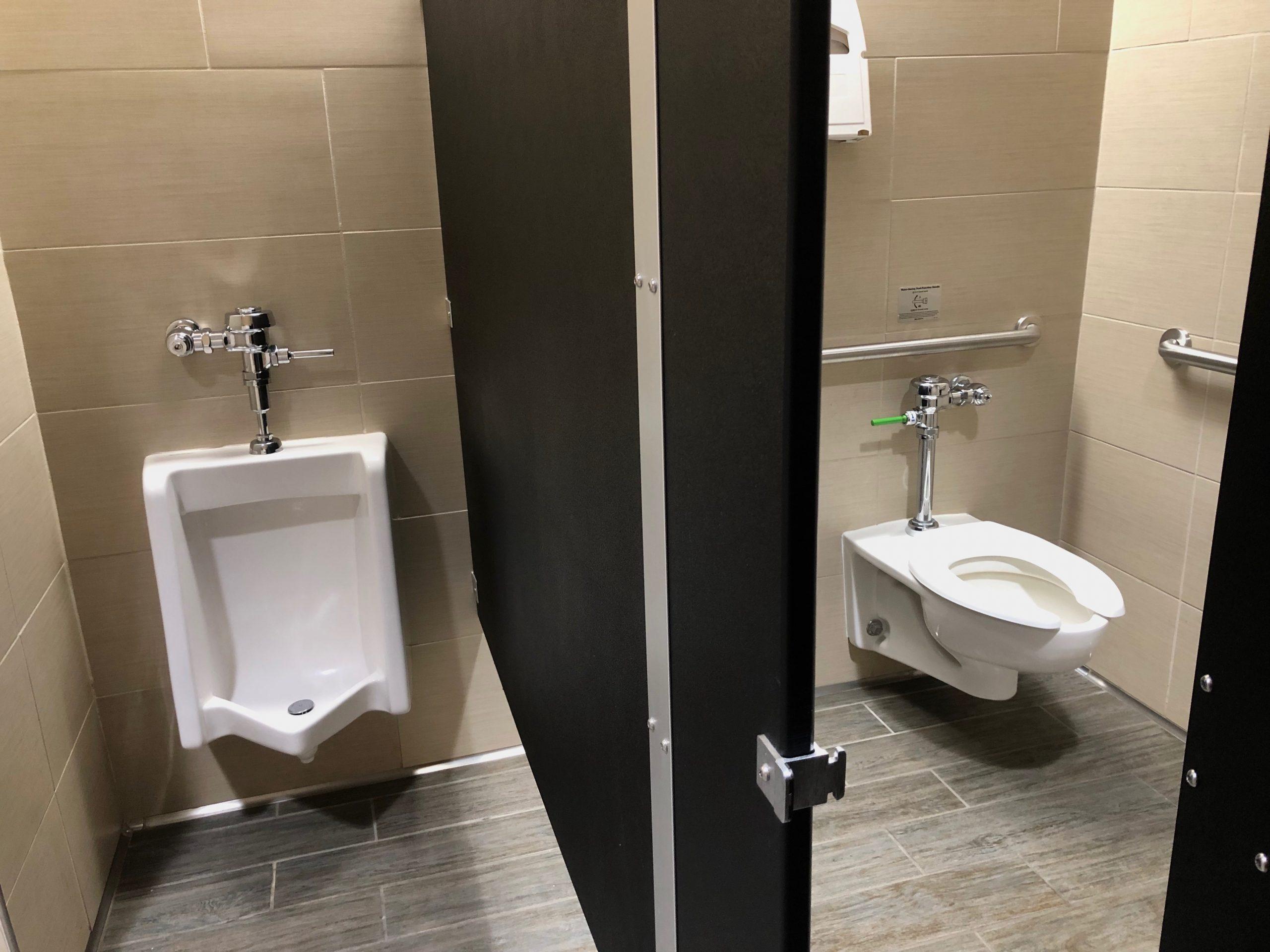After a 2014 effort on behalf of the President’s Commission on LGBTQ Affairs, Facilities and Campus Services worked to transition single-user restrooms on campus into all-gender bathrooms. Since this initial endeavor, no other bathrooms had been updated as all-gender until now. As a result of a push from the Student Government Physical Planning Committee, Benson University Center has acquired its third all-gender restroom.
Although there were already two all-gender restrooms in Benson, they are relatively inaccessible due to their location on the fifth floor of the building.
The reconfiguration of a bathroom on the third floor will allow for transgender, non-binary and gender nonconforming students to use the bathroom with ease while eating on the second floor or socializing in one of the many student spaces on the third floor.
“For transgender, nonbinary and gender nonconforming students, having access to all-gender restrooms is a really important part of being able to go about their daily lives and perform necessary bodily functions without stress and anxiety,” said LGBTQ Center Director Angela Mazarais. “And for students who spend a lot of time at the LGBTQ Center, having access to an all-gender restroom close by is one way that we can increase access and a sense of inclusion in this part of campus.”
The new bathroom, which is located across from the LGBTQ Center, contains a toilet stall, urinal and a baby changing station. It is designed to function for a single user, but can also be used for companion or child care.
As the co-chair of the Physical Planning Committee, sophomore Caroline Wright helped to establish this restroom as all-gender. After meeting with Mazarais to learn more about the importance of and history surrounding all-gender bathrooms on campus, the committee reached out to John Shenette, vice president of Facilities and Campus Services.
“Facilities took on the project and we found out that the bathroom renovation had been completed at our first [Student Government] Senate meeting this semester,” Wright said. “These types of bathrooms are important, because they help make gender nonconforming individuals, whether they are trans or non-binary, feel safer in public spaces.”
Following the reverberations of North Carolina’s 2016 House Bill 2 (HB2), the venture of creating all-gender bathrooms at the university has continued to take on importance. Although it was eventually repealed in 2017, HB2 stated that individuals could only use the bathroom that correlated with the gender listed on their birth certificate. Thus, transgender individuals were not legally allowed to use the gendered public restroom with which they identified.
“To have our state legislature make a bill that really seemed to target transgender people with absolutely no evidence behind it was really harmful to trans and gender nonconforming people around North Carolina and really scary for students on our campus,” Mazarais said.
Since the university is a private institution, HB2 never impacted campus. In fact, the university was already in the process of renovating bathrooms, as well as establishing a policy that new buildings on campus would automatically be built with all-gender restrooms.
“It was really good for us when that bill passed, we were able to say: ‘Hey, actually this is something we have already been working on — here’s our map of all gender restrooms’,” Mazarais said. “These are ways in which we can structurally support the lived experience of trans, non-binary and gender nonconforming folks on our campus.”
As the university continues to tackle this issue, Wright pointed out the current lack of all-gender restrooms in Wake Downtown. According to the university’s Human Resources webpage, the only accessible bathroom is on the first floor of the Wake Forest School of Medicine.
“I think, with the new construction happening on campus in the next few years, all-gender restrooms should be a consideration in terms of planning for new construction and renovation,” Wright said.
Mazarais highlighted the work the LGBTQ Center is doing to be a further resource for the transgender, non-binary and gender noncomforming students, faculty and staff. Alongside increasing the number of all-gender bathrooms, the center has worked to solidify gender-neutral housing and is moving to put together a comprehensive guide for transgender students.
“We are really trying to think about the different places across the student life cycle where students may need an accommodation of some sort in order to have an equitable experience in their education,” Mazarais said.














